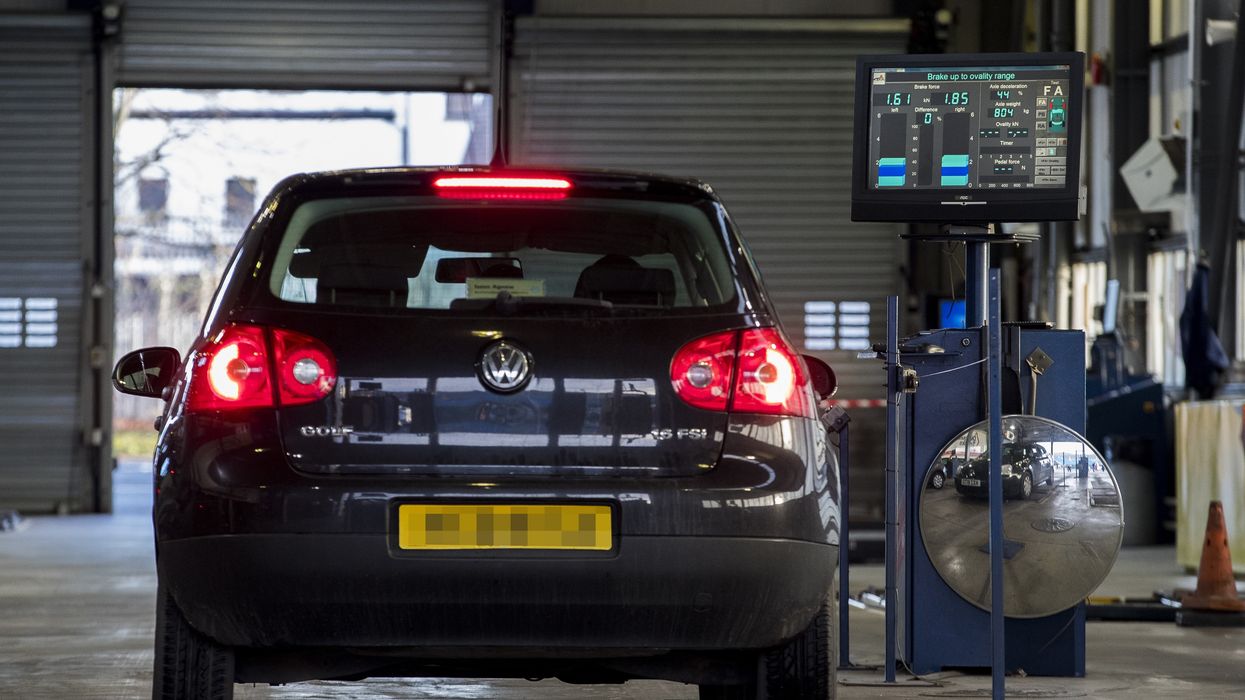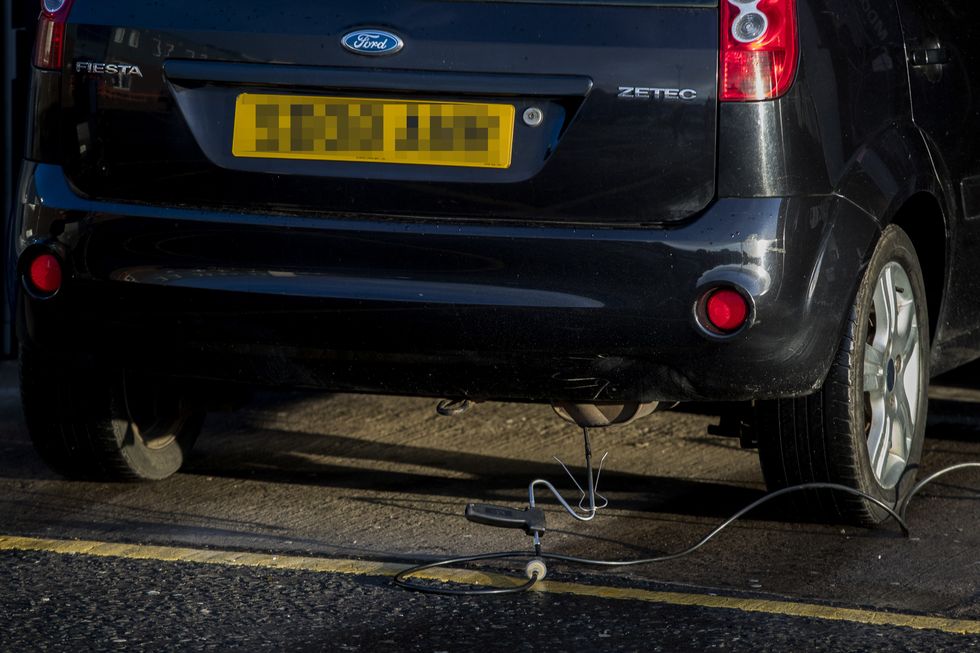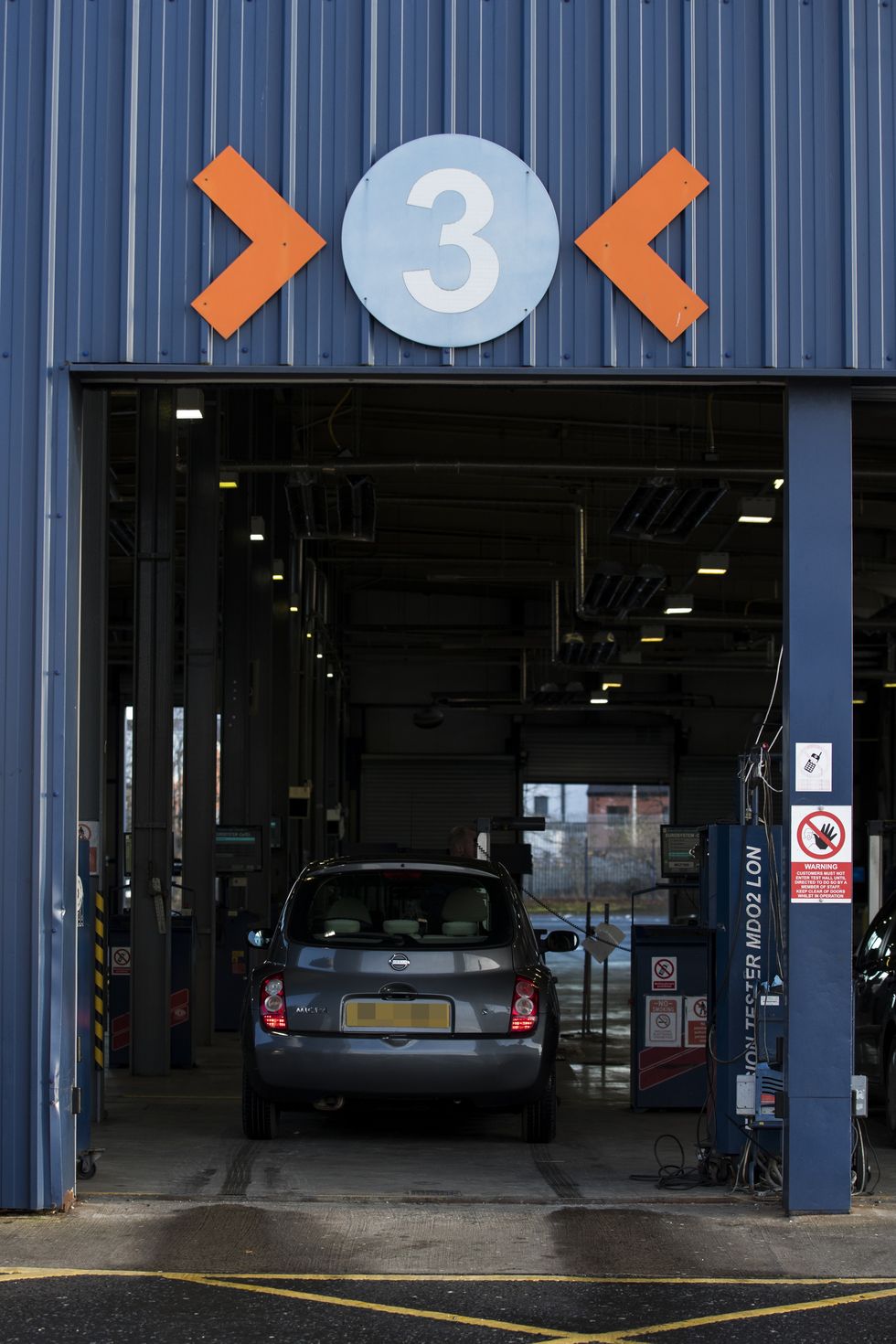Electric car tyres are 40 per cent more likely to fail MOT than petrol vehicles

Electric car drivers taking their vehicle for an MOT test may see issues with their tyres.
|PA.

Electric car owners could see more issues when taking their MOT test than petrol drivers, especially with their tyres.
Don't Miss
Most Read
Latest
New data has found that electric vehicles experience a 40 per cent higher MOT tyre failure rate than petrol counterparts.
The research, from the Institute of the Motor Industry (IMI), concluded that the greater weight of electric cars compared to other vehicles was responsible for the higher failure rate.
It also stated that electric vehicles producing a greater amount of torque could have an impact on the tyre and how quickly it gets worn down.
This can be further worsened by the style of driving, with harsh braking potentially degrading the tyre even further.

Since 2000, one-fifth of EVs have failed their MOTs, compared to an average failure rate of 29 per cent for petrol cars
|PA.
According to the report, the overall MOT failure rate for newer electric cars from all causes was greater than the level for petrol vehicles.
The research analysed data from 2021, with the IMI saying electric cars failed “more on dangerous items” than petrol vehicles.
Steve Nash, CEO of the IMI, said: “Most electrics are electric versions of petrol and diesel, so they are relatively heavy, and it doesn’t really matter what you do with different tyre mixes, they are simply going to wear tyres more.”
Since 2000, one-fifth of EVs have failed their MOTs, compared to an average failure rate of 29 per cent for petrol cars.
In addition to the MOT data, the IMI warned that there may be a dramatic shortfall of qualified mechanics and technicians by 2032.
Mechanics who can deal with electric cars are not as common as those who work on petrol and diesel vehicles, potentially affecting the uptake of electric cars.
Mr Nash continued, saying that people may be put off by not being able to safely operate their car if it cannot be fixed.
He added: “If people don’t think they can get their car fixed, that’s as much of a reason not to buy one as not having a network of charging points.
“There’s always that risk that somebody will decide to have a go at it, and think ‘how difficult can it be anyway?’, and that’s when you open yourself up to injury, or worse.”
A total of 150 local authorities took part in the research, and of those, fewer than two per cent of all trained mechanics could fix electric vehicles.
Earlier this year, the Department for Transport launched a consultation aimed at improving the process of putting a vehicle through an MOT test and saving money for hard-pressed drivers.
Within the call for evidence, it questioned how the MOT process could evolve to address the rising number of electric and hybrid vehicles seen on the roads.
LATEST DEVELOPMENTS:

The MOT consultation ended earlier this year.
|PA.
One section of the MOT test looked into the possibility of having garages that only tested electric vehicles, questioning whether they could operate without having equipment for testing petrol and diesel cars.










